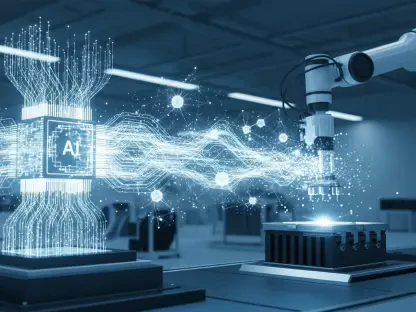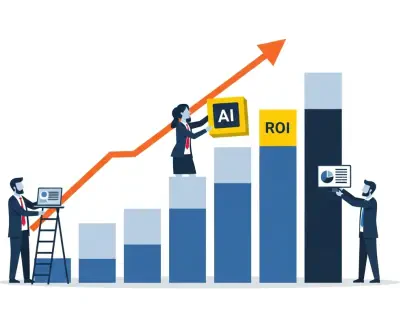Overview of the Software Testing Industry
The software testing industry stands as a cornerstone of modern technology, ensuring that applications meet the stringent quality demands of users in an increasingly digital world, where software has become integral to business operations and consumer experiences. Testing has evolved into a critical process that validates functionality, security, and performance across diverse platforms. This sector encompasses various methodologies, including manual testing for detailed human oversight, automated testing for speed and repeatability, and continuous testing to support agile development cycles. Major players like Sauce Labs lead the charge, alongside competitors who collectively drive innovation to keep pace with rapid software deployment needs.
Technological advancements, particularly the integration of artificial intelligence and automation, have significantly reshaped testing practices over recent years. AI-driven tools now analyze vast datasets with precision, while automation reduces repetitive tasks, allowing teams to focus on complex challenges. These innovations address the pressing need for faster development cycles without sacrificing reliability, a balance that is paramount as consumer expectations for seamless, high-quality applications continue to rise. The industry’s role in enabling quick market delivery is undeniable, as it supports organizations in maintaining a competitive edge through robust software solutions.
Beyond technology, the market dynamics reveal a growing emphasis on scalability and adaptability in testing frameworks. As businesses expand globally, the demand for testing across multiple devices, environments, and user scenarios has surged, pushing companies to adopt comprehensive platforms. This shift underscores the industry’s importance in not only detecting defects but also in fostering trust in digital products, ensuring they perform consistently under varying conditions.
Sauce AI for Insights: A Game-Changing Innovation
Addressing Data Overload with AI Technology
One of the most persistent hurdles in software testing is the sheer volume of data generated during test executions across builds, devices, and environments. This data overload often overwhelms traditional analysis methods, such as manual log reviews, leading to delayed insights and hindered decision-making. Engineering teams frequently find themselves bogged down by the task of sifting through information, which detracts from their ability to innovate and address core development goals.
Sauce AI for Insights emerges as a transformative solution, leveraging advanced AI technology to convert raw test data into actionable “Quality Intelligence.” By employing natural language processing, the tool allows users to query data conversationally, while real-time analytics deliver immediate, relevant findings. Additionally, role-based insights ensure that developers, managers, and executives receive tailored information, addressing specific needs and enhancing usability across organizational levels.
This innovation opens new avenues for engineering teams to prioritize strategic tasks over manual data handling. By automating the interpretation process, the technology frees up valuable time, enabling a sharper focus on creating cutting-edge features. Such capabilities mark a significant step forward in tackling the evolving complexities of software testing, positioning AI as a vital asset in modern workflows.
Impact and Performance Metrics
Early results from beta testing of Sauce AI for Insights highlight its profound effect on testing efficiency, with reports indicating a 99% faster identification of root causes for issues. Debugging, which previously consumed hours, has been reduced to mere minutes, showcasing the tool’s ability to streamline critical processes. These metrics reflect a substantial improvement in how teams address and resolve software defects, directly impacting productivity.
Looking ahead, projections suggest a rapid increase in AI adoption within the software testing realm, with potential for teams to reclaim hundreds of engineering hours monthly. This time savings translates into accelerated project timelines and enhanced capacity for innovation. Industry analysts anticipate that such tools could redefine benchmarks, pushing the boundaries of release velocity while maintaining stringent quality standards.
The forward-looking impact of this technology lies in its ability to establish new norms for operational efficiency. As organizations integrate these AI-driven insights, the expectation is a marked shift in how software quality is managed, with faster cycles becoming the standard. This sets a precedent for future tools to build upon, ensuring that efficiency and precision remain at the forefront of development practices.
Challenges in Modern Software Testing
Managing the deluge of test data across diverse builds, devices, and environments remains a formidable challenge for many organizations. The complexity of tracking results in such a fragmented landscape often leads to missed insights and delayed responses to critical issues. This persistent problem strains resources, as teams struggle to maintain a clear view of quality metrics amidst constant updates and iterations.
Technological limitations further compound these difficulties, with traditional tools like static dashboards failing to provide dynamic, real-time analysis. Manual log reviews, while thorough, are time-intensive and prone to human error, making them ill-suited for the fast-paced demands of today’s development cycles. These outdated methods often result in bottlenecks, hampering the ability to swiftly identify and address software flaws.
Market pressures add another layer of complexity, as businesses face the imperative to release software at an accelerated pace without compromising on quality. This expectation places immense stress on engineering teams, who must balance speed with reliability under tight deadlines. Solutions like AI-driven automation and intelligent failure analysis, as exemplified by Sauce AI for Insights, offer a promising path to alleviate these strains, providing clarity and efficiency where conventional approaches fall short.
Regulatory and Compliance Considerations in Testing
Compliance holds a pivotal role in software testing, particularly for enterprise-grade applications operating within regulated industries such as finance and healthcare. Adhering to strict standards ensures that software meets legal and security requirements, protecting both businesses and end-users from potential risks. Failure to comply can result in significant penalties and reputational damage, making this aspect non-negotiable for many organizations.
Sauce AI for Insights aids in risk mitigation by delivering comprehensive quality metrics and proactive defect prevention mechanisms. These features enable teams to identify vulnerabilities early, ensuring that issues are addressed before they escalate into compliance breaches. Consistent monitoring throughout the software development lifecycle further supports adherence to regulatory frameworks, maintaining a high level of accountability across all phases.
The impact of regulatory demands on testing practices necessitates tools that prioritize stability and transparency. As standards evolve, the need for robust solutions that can adapt to new requirements becomes increasingly apparent. By integrating advanced analytics and detailed reporting, modern platforms help organizations navigate these complexities, ensuring that quality and compliance remain aligned with business objectives.
Future Outlook for AI in Software Testing
The trajectory of AI-driven testing solutions points to a landscape dominated by automation and real-time decision-making capabilities. Emerging trends indicate a growing reliance on intelligent systems to handle repetitive tasks, allowing human resources to focus on strategic problem-solving. This shift is expected to redefine efficiency standards, with tools becoming more intuitive and predictive over the next few years, from now through 2027.
Potential disruptors, such as the shift-left movement, are gaining traction, encouraging developers to assume greater responsibility for testing early in the development process. This cultural change, supported by AI tools, fosters a more integrated approach to quality assurance, reducing downstream defects. Consumer preferences for rapid, high-quality software releases will continue to fuel innovation, pushing vendors to develop solutions that cater to these accelerated timelines.
Growth areas like cross-functional collaboration and the democratization of insights across technical and non-technical roles are also on the horizon. As global economic and technological advancements unfold, the ability to share actionable data with diverse stakeholders will enhance decision-making and alignment. AI’s role in bridging these gaps promises to create a more cohesive environment, where quality becomes a shared priority across entire organizations.
Conclusion and Strategic Recommendations
Reflecting on the insights gathered, it is evident that Sauce AI for Insights has marked a turning point in software testing by driving unparalleled efficiency and elevating software quality. The dramatic reduction in debugging times and the acceleration of release cycles have demonstrated its value in addressing long-standing industry pain points. Moreover, its contributions to risk management and cross-role collaboration have set a strong foundation for improved operational outcomes.
Looking ahead, organizations are encouraged to embrace AI-powered testing solutions as a strategic imperative to maintain competitiveness in a dynamic market. Investing in such technologies could position companies to better navigate the balance between speed and reliability, ensuring they meet evolving consumer demands. A proactive approach to integrating these tools will likely yield long-term benefits, from enhanced productivity to stronger compliance postures.
As a final consideration, fostering a culture of continuous learning and adaptation around AI capabilities is deemed essential. Businesses that prioritize training and alignment across teams can maximize the potential of these innovations, turning data-driven insights into a sustainable advantage. This strategic focus promises to keep quality at the core of software delivery, paving the way for resilience and growth in an ever-changing technological landscape.









